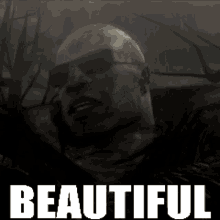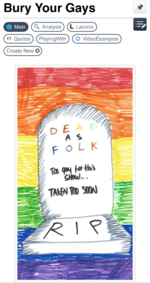Skill IssueNormally I would agree, but she was some kind of super slime. So prolly no issues, and the elf can just take shelter inside her.
But yes, would be ironic if this random pair got their couples suicide mc is constantly on the prowl looking for getting himself, with no issues. And mc can't.
You are using an out of date browser. It may not display this or other websites correctly.
You should upgrade or use an alternative browser.
You should upgrade or use an alternative browser.
Isekai Shikkaku - Vol. 8 Ch. 44
- Thread starter MangaDex
- Start date
Dex-chan lover
- Joined
- Mar 9, 2020
- Messages
- 1,571

Plot twist: they later died in the snow storm.
I mean yeah running into the forest, with no preperation, food, other clothes, anything really in the middle of nowhere.
What a great idea!
Diantha still has home in that village. Logically, they most likely went there before leaving.
Contributor
- Joined
- Jan 19, 2018
- Messages
- 5,190
Exactly. Let’s not forget about the prototypical yuri story, Thelma and LouiseDeath or suicide is not uncommon for yuri story ending.
For the pair, usually it's still happier or better than the alternatives.

I think you are misrepresenting the punishment a bit here.Death is a better alternative than this village of biggots at least you die free.
The guys in this chapter seemed to be ready to rape the elf girl to make her theirs (not so fun fact in medieval Europe if you raped an unmarried woman your "punishment" was to be forced to marry her it may differs depending the place but that was the standard one, it was only until the Spanish Inquisition said this was not a punishment that they started treating it like an actual crime).
What does it have to do with this chapter ? i don't know it just gave me the "vibes" that made me think about this.
The women were the property of their spouses, and before that, of their father (or brother if the father had died). "Marriage" involved a large compensation paid to the prior owner ("dowry" iirc? though that might have been the word from cultures that on the contrary had the daughters family pay the spouse (to ensure they treat her well)), and overall treated much like a transference of goods (much like slaves (also much like slaves, the wife doesn't actually have much rights or protections against the spouse)).
So being "forced to marry the girl" effectively means "forced to pay a large remuneration to the girls father as compensation", and then getting to 'take home the broken commodity'. It is like how many stores have a "if you break it, you buy it" policy.
I do agree that it [the crime and its punishment] is not very good either way. But there I actually have larger issues with how the girl is treated as an object to begin with, and even the horribly lenient "punishment" or initial crime almost pales in comparison. She was fated to be raped, even if the father had married her to someone normally. Because I sure as hell don't consider the bridal night [of such a transaction] (or any subsequent for that matter) as consensual.
Last edited:
Double-page supporter
- Joined
- Mar 10, 2019
- Messages
- 40
What? Conservative way of thinking is not for everyone! WHAT, no way! It's good that in our world we sorta this things right... 
Dex-chan lover
- Joined
- Jun 1, 2018
- Messages
- 934
What a beautiful story and ending, I want to see this arc get beautifully animated too. 🥺🥺🥺 But I kinda doubt the anime will reach this point, unless...?
Man, this manga never fails to surprise me. I love how sweet and sentimental it can get.
Reminds me of how much I like the short arc about a wheelchair user otherworlder becoming a wolf to protect an orphanage. Short but sweet, though this is arguably more important as it involves a member of the fallen angels.
I kinda want to see Eliza again in the future, preferably being happy. May she be happy this time.
Thanks for the update!
Man, this manga never fails to surprise me. I love how sweet and sentimental it can get.
Reminds me of how much I like the short arc about a wheelchair user otherworlder becoming a wolf to protect an orphanage. Short but sweet, though this is arguably more important as it involves a member of the fallen angels.
I kinda want to see Eliza again in the future, preferably being happy. May she be happy this time.
Thanks for the update!
Dex-chan lover
- Joined
- Jan 14, 2019
- Messages
- 3,283
Thank you for the chapter! Let the lesbians live in peace.
Member
- Joined
- Apr 22, 2020
- Messages
- 15
Well this what exactly local law in Indonesia in the past(I don't know if now), but even if there already country law for it in Indonesia, that "punishment" still exist if the girl can't prof it and will immediately force them to marry in a week to make them legal to do that and will not be a taboo by religion view, the local will think "they do it, because they like each other, and try hide it but got caught"Death is a better alternative than this village of biggots at least you die free.
The guys in this chapter seemed to be ready to rape the elf girl to make her theirs (not so fun fact in medieval Europe if you raped an unmarried woman your "punishment" was to be forced to marry her it may differs depending the place but that was the standard one, it was only until the Spanish Inquisition said this was not a punishment that they started treating it like an actual crime).
What does it have to do with this chapter ? i don't know it just gave me the "vibes" that made me think about this.
Dex-chan lover
- Joined
- Jul 4, 2019
- Messages
- 1,023
Never watch it, cause I'm not really movie watcher.Exactly. Let’s not forget about the prototypical yuri story, Thelma and Louise

But I read way too many yuri or shoujo ai manga with death or suicide ending.
And personally it's usually still better than the ending where the girls need to separate or hide their feelings.
Dex-chan lover
- Joined
- Jan 10, 2023
- Messages
- 1,592
For realsies? Link itIt is actually
Dex-chan lover
- Joined
- Jun 10, 2019
- Messages
- 109
mfw they could easily be going to her house to prepare + she has op slime powersPlot twist: they later died in the snow storm.
I mean yeah running into the forest, with no preperation, food, other clothes, anything really in the middle of nowhere.
What a great idea!
Contributor
- Joined
- Feb 4, 2019
- Messages
- 7,659
If it did it would be severely edited down. With Japan's current suicide rates they're not going to let a MC that's actively trying to kill himself in every episode air on public TV, even if he's based on a RL author.wish to see this animated.
Dex-chan lover
- Joined
- Jan 25, 2023
- Messages
- 9,950
I guess so - the only way you can get uncensored death is to draw it out like PLATINUM END.If it did it would be severely edited down. With Japan's current suicide rates they're not going to let a MC that's actively trying to kill himself in every episode air on public TV, even if he's based on a RL author.
Dex-chan lover
- Joined
- Jan 25, 2023
- Messages
- 9,950
Spanish Inquisitors have more morals.
Death is a better alternative than this village of biggots at least you die free.
The guys in this chapter seemed to be ready to rape the elf girl to make her theirs (not so fun fact in medieval Europe if you raped an unmarried woman your "punishment" was to be forced to marry her it may differs depending the place but that was the standard one, it was only until the Spanish Inquisition said this was not a punishment that they started treating it like an actual crime).
What does it have to do with this chapter ? i don't know it just gave me the "vibes" that made me think about this.
Dex-chan lover
- Joined
- Jun 9, 2018
- Messages
- 1,183
I would like to add that "Bury your Gay" trope seems to have been consequences of the "Hays codes". When homosexuals were deemed immoral and must shown consequences of being one. Now that society mostly shifted from these homophobic moral panicing, I hope this became outdated trope from here on out.
Similar threads
Users who are viewing this thread
Total: 2 (members: 0, guests: 2)

